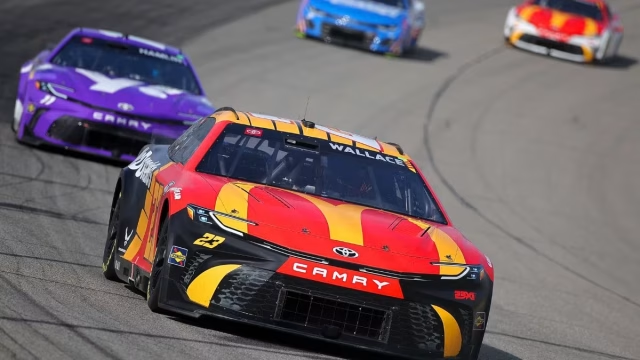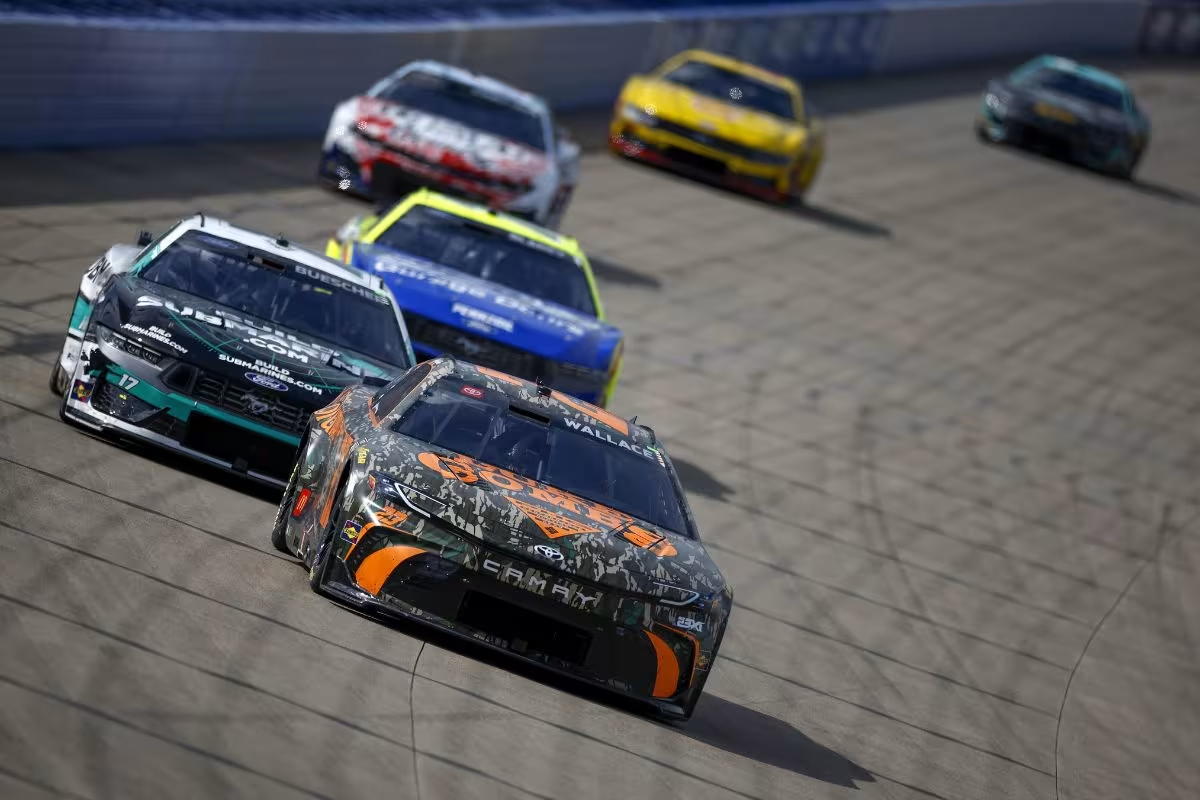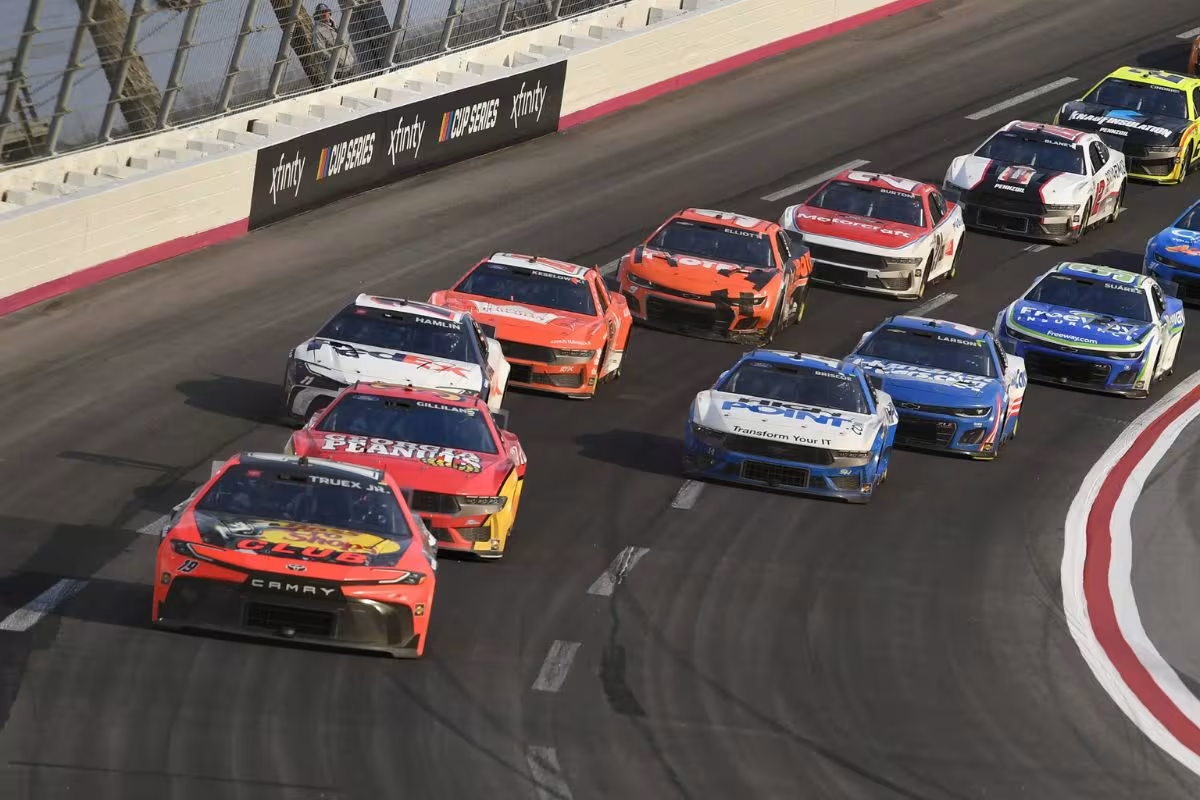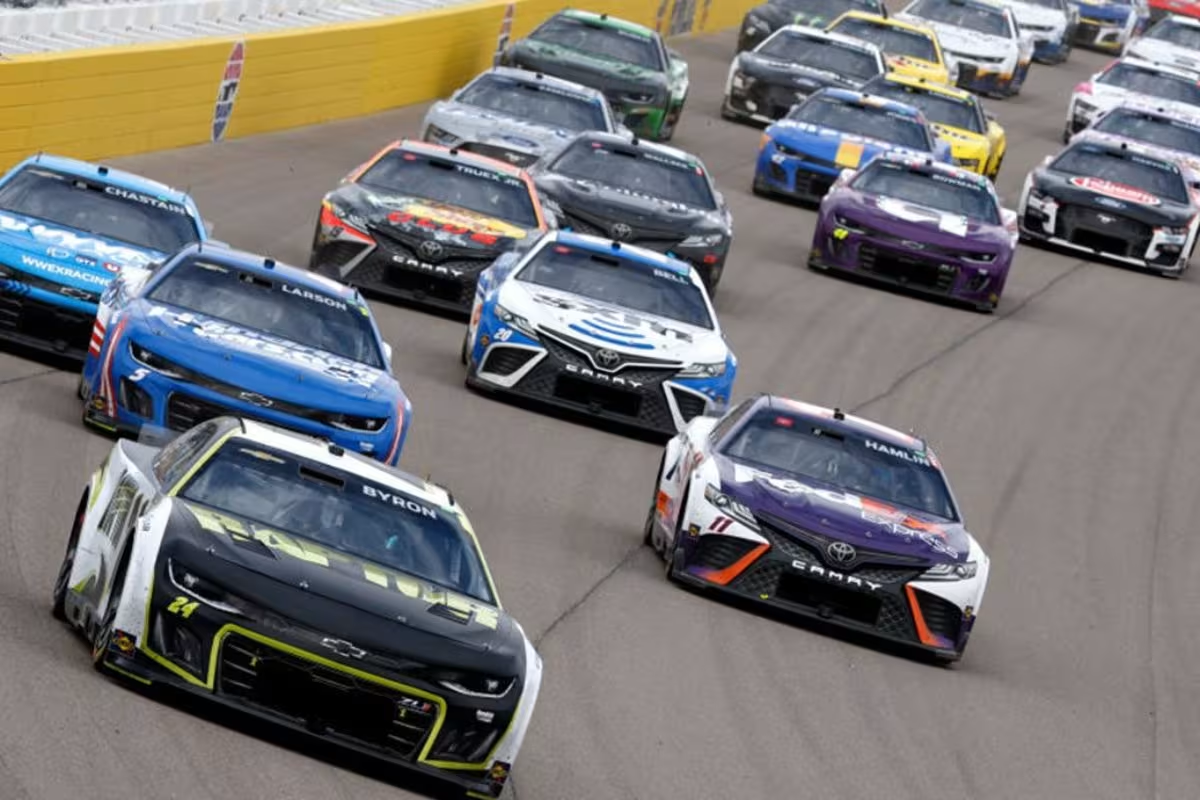23XI Racing and Front Row Motorsports’ NASCAR Future: The antitrust lawsuit filed by 23XI Racing and Front Row Motorsports against NASCAR poses notable risks to their futures. By challenging the charter system, they argue it favors established teams, thereby impairing competition and growth potential. Their reluctance to sign the 2025 charter agreement complicates planned expansions. The absence of a preliminary injunction could lead to operational limitations and increased costs, severely affecting financial viability. A ruling against NASCAR could also trigger vital governance changes within the league, impacting all teams.
Key Highlights
- The ongoing antitrust lawsuit could hinder 23XI Racing and Front Row Motorsports from expanding their teams, impacting their long-term growth potential.
- Without a preliminary injunction, both teams may face increased operational costs by having to compete with open cars.
- Lack of charter agreements limits access to essential revenue streams, jeopardizing the financial stability of both organizations.
- A ruling against NASCAR could significantly alter the competitive landscape, potentially benefiting smaller teams like 23XI Racing and Front Row Motorsports.
- The lawsuit’s resolution will determine their future viability within NASCAR and influence relationships with the league moving forward.
Overview of the Antitrust Lawsuit
Frequently, legal disputes within professional sports leagues can have far-reaching implications, and the antitrust lawsuit filed by 23XI Racing and Front Row Motorsports against NASCAR is no exception.
An antitrust suit in this situation aims to address perceived monopolistic behaviors that could stifle competition and innovation in the sport.
At the heart of the lawsuit is the concern that NASCAR’s charter system, which governs team ownership and participation, may create an uneven playing field.
23XI Racing and Front Row Motorsports believe the current system unfairly benefits the bigger, more established teams, making it harder for newer or smaller teams to grow and compete.
This dynamic not only affects the financial viability of these teams but also has broader implications for fan engagement and the general health of the sport.
As the litigation unfolds, the potential ramifications are considerable. An unfavorable ruling for NASCAR could lead to a major overhaul of its governance structures, thereby reshaping the competitive landscape.
A victory for NASCAR could entrench the existing hierarchy, making it more challenging for teams like 23XI Racing and Front Row Motorsports to secure their long-term futures.
23XI Racing and Front Row Motorsports are suing NASCAR
What does that mean for the 2025 season? Neither team has signed the charter agreement for 2025, but both are set to have up to three teams each next season.
Amid ongoing legal tensions, the implications of 23XI Racing and Front Row Motorsports’ antitrust lawsuit against NASCAR loom large as the 2025 season approaches. Both teams have refrained from signing the charter agreement, which contains a contentious provision requiring teams to relinquish their rights to pursue antitrust claims against NASCAR.
This legal maneuvering highlights several critical factors:
- Charter Agreement Stalemate: The lack of agreement signifies a tactical stand-off, as both teams prioritize their legal rights over immediate financial stability.
- Potential Team Expansion: With plans to field up to three teams each, both 23XI Racing and Front Row Motorsports are positioning themselves for growth.
- Market Dynamics: The antitrust case could reshape the competitive landscape within NASCAR. If successful, it may alter how charters are allocated and the comprehensive governance of the sport, potentially benefiting not only the plaintiffs but also other teams feeling constrained by NASCAR’s policies.
As the season nears, the duality of pursuing legal recourse while preparing for competition creates a complex environment for 23XI Racing and Front Row Motorsports.
The stakes are high, as the resolution of this lawsuit will influence not only their immediate operational tactics but also the long-term viability of their business models within the NASCAR framework.
Seeking a Preliminary Injunction
23XI Racing and Front Row Motorsports have filed a motion seeking a preliminary injunction against NASCAR. This serves as a crucial tool in their broader antitrust lawsuit, aiming to halt what they perceive as detrimental practices by NASCAR that jeopardize their competitive standing.
Specifically, the teams are contesting Section 10.3 of the Charter Agreement, which they argue compels them to relinquish vital antitrust rights. A preliminary injunction, if granted, would allow the courts to temporarily suspend the enforcement of this section.
This action highlights the urgency of their situation; the teams argue that the existing Charter Agreement considerably limits their operational flexibility and undermines their ability to compete effectively within the NASCAR framework.
The complaint delineates the stakes involved: should the court grant the preliminary injunction, 23XI and Front Row would retain their rights under antitrust laws while continuing to function as chartered teams.
This dual focus not only seeks immediate relief but also aims to preserve their competitive integrity in a rapidly evolving racing landscape. By initiating this legal challenge, both teams are signaling their commitment to safeguarding their interests, while simultaneously drawing attention to broader concerns regarding the governance of NASCAR and the implications of its contractual agreements.
Implications of the Lawsuit on Racing Operations
The ongoing legal battle initiated by 23XI Racing and Front Row Motorsports carries notable implications for their racing operations and the broader NASCAR ecosystem.
1. Charter Agreement Importance: Without a preliminary injunction allowing for the signing of charter agreements, both teams could be forced to operate open cars, incurring considerably higher costs.
The NASCAR Cup Series is ill-equipped to support this model for full-time participation.
2. Financial Viability: The absence of a charter agreement would eliminate access to critical revenue streams, including television rights and performance bonuses.
This could severely hinder the financial stability of both organizations, making it difficult to sustain competitive operations.
3. Long-term Effect on NASCAR: The lawsuit’s outcome could set a precedent that alters the NASCAR landscape.
Should 23XI Racing and Front Row Motorsports prevail, it may usher in a new era of competition and collaboration, impacting how teams negotiate and operate within the series.
Ultimately, the necessity of the preliminary injunction cannot be overstated.
It not only affects immediate racing logistics but also the broader implications for team strategies, financial health, and the future governance of NASCAR.
News in Brief: 23XI Racing and Front Row Motorsports’ NASCAR Future
The antitrust lawsuit initiated by 23XI Racing and Front Row Motorsports against NASCAR raises considerable concerns regarding the future dynamics of the sport.
As both teams navigate the complexities of the legal battle without having signed the 2025 charter agreement, uncertainty looms over their operational strategies and competitive positioning.
The outcome of this case could reshape not only their immediate futures but also the broader landscape of NASCAR, potentially altering team structures and the regulatory framework governing the league.
ALSO READ: NASCAR Insider Blasts Team Owners: ‘Didn’t Have the B-lls’ to Face the France Family.



